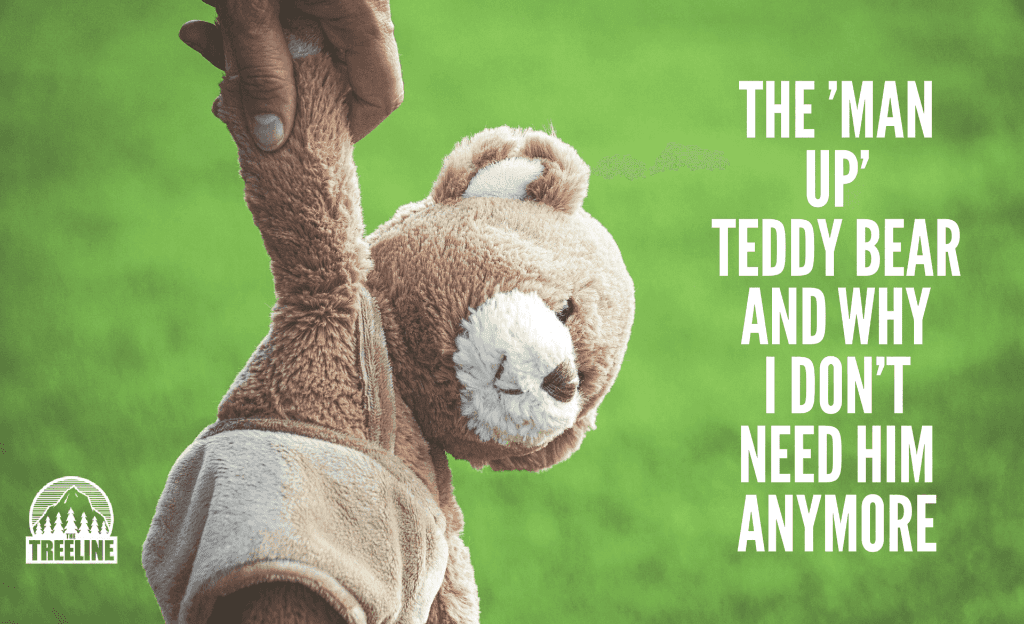Manning Up part 1
Why its not (completely) toxic

MANNING UP Part one
‘Manning Up’ is not a phrase I like but as a collective term for ideas that have shaped the way men think and act for millenia its pretty useful.
I was raised on the idea that men are physically and mentally tough. That they bear up and set an example with their ability to contain fear and sadness, that they endure physical pain and discomfort without complaint.
Of course it won’t solve the long term problems and its not the road to spiritual wellbeing but as an emotional sticking plaster, something to keep you in the game, something to get you through, it’s tried and tested. I have embraced it wholeheartedly my entire life but it seems that all too often we equate an upbringing that includes this message with misogyny, patriarchy, toxic masculinity and suicide. There are some clear links but they are not one and the same.
Tim Winton in a recent piece in the Guardian says
When you’re bred for mastery, when you’re trained to endure and fight and suppress empathy, how do you find your way in a world that cannot be mastered? How do you live a life in which all of us must eventually surrender and come to terms? Too many men are blunt instruments. Otherwise known, I guess, as tools. Because of poor training, they’re simply not fit for purpose.
He’s right in that in a changing world we need much more than a chromosome count and a belief in superiority but in the idea of suppressing empathy I think he’s missing something that is fundamental to Manning Up and the notion of traditional manhood; being there for others.
There has been much said about the poverty of dialogue exchanged between men when they try to help each other but sometimes a hand on the shoulder and a joke - often about the cause of the problem in the first place - can divert and re- route our dark thoughts long enough to remember that its not all bad and that we can keep going.
Another emotional sticking plaster? Probably. Many of us are held together with them but ask most men how they’d like to be seen by other men and its not as someone who is physically and emotionally tough, it’s as someone who's there for their fellow man, someone who can be relied upon, someone solid and dependable.
And from that supposedly toxic ability to suppress emotions can come an ability to do all of the above even if we’re in the same predicament ourselves, even if we’re scared, even if we don’t know what to do. When people are relying on us we’ll be able to inspire calmness and protect others from fear and panic, the sort of things that leave very real mental scars.
During one of the numerous childhood adventures my brother and I had with our Dad we rowed our rubber dinghy out to explore an old WW2 gun emplacement on the south coast. On the way back we sang ‘Fifteen men on a dead man’s chest’ at the tops of our lungs. Many years later my Dad confessed that he had taken no account of the tides and that it had been touch and go as to whether we were pushed out to sea on the return trip. He must have been extremely worried, George and I were seven and six at the time and we had nothing with us but our trunks and snorkelling masks. The row back, against the tide, in choppy seas must have nearly killed him.
Irresponsible and ill advised? Certainly. But my dad could have voiced his fears, he could have paniced or just given up but instead he did what he’d been raised to do and Manned Up. He concealed the very real sense of fear he must have been feeling and acted as if everything was just fine. He knew that my brother and I would have been terrified to know that we might drown and that would have been compounded by seeing that fear in him. I can only imagine his relief as the dinghy finally ground to a stop on the beach.
These sort of experiences, not always so potentially disastrous, were a regular feature of my childhood. We abseiled in the quarry, we climbed derelict buildings, we built zip lines and we crossed rivers using bin liners for flotation. It was frightening sometimes but I can look back on many instances in later life where I simply would not have coped without the experiences of overcoming fear that we had as kids.
My Dad knew we’d need them where we were going and he knew that he wouldn’t always be there to keep us safe. I’ve heard this same style of parenting labeled as being dehumanising or brutalising and taken to extremes that’s what it will do, but only in the absence of something very important.
I came to learn, despite the jokes he made about our impending doom, that if it came to the crunch he would do whatever it took to keep us safe and in so doing he not only became a hero to me but set the most useful example of all: the abiity to trust and to inspire the same in others.
In part two of this post I’d like to look at ways in which we can deal with the consequences of Manning Up or, more specifically, how we can safely retain selected elements of traditional manhood.













